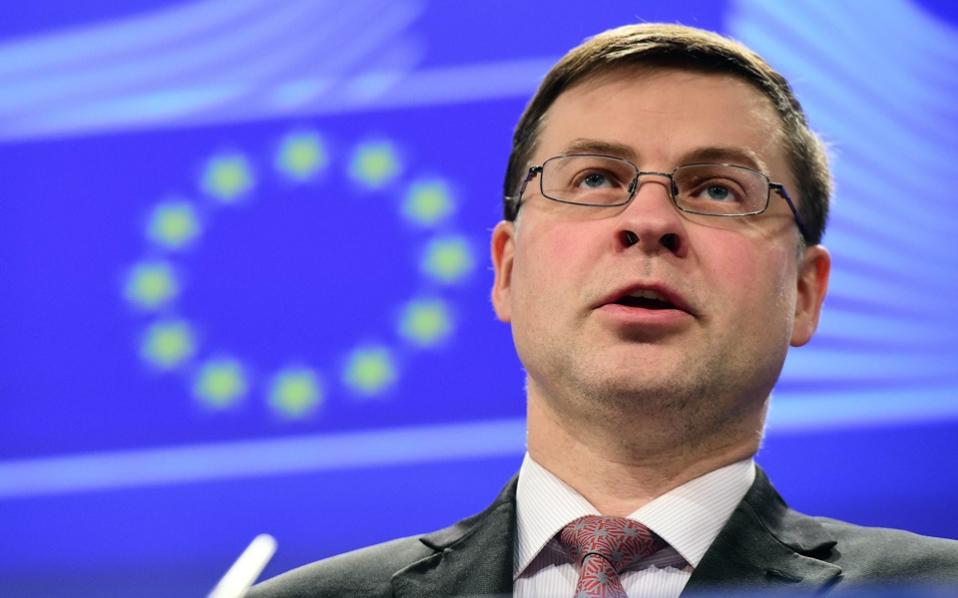Fiscal easing for 2023 too?
Small primary budget surplus recorded in January, instead of a projected primary deficit

European officials are now leaving open the possibility for fiscal relaxation to continue into 2023 too, given the situation in Eastern Europe and its impact on eurozone economies, while the Greek budget outperformed in January according to the latest data.
The general European Union Stability Pact get-out clause is supposed to stop at the end of this year, European Commission Vice President Valdis Dombrovskis said on Friday in Paris, with the Commission’s projections pointing to a slowdown and not a new recession in the bloc. However, he stressed, if economic conditions take a turn for the worse, “we are ready to revise” this policy.
Toeing the same line, Eurogroup President Paschal Donohoe said the council of eurozone finance ministers will meet again in three weeks’ time in Brussels to discuss next year’s fiscal policy.
European Central Bank chief Christine Lagarde also left the door open for adjusting policies, toward Frankfurt’s support to the eurozone economy if deemed necessary.
Meanwhile in Athens the State General Accounting Office announced the data on the execution of the budget last month, showing a primary surplus of 15 million euros against a target for a primary deficit of €1.145 billion.
Still, revenues showed a reduction in January, though this is explained by the extension to the payment of tax dues because of the adverse weather late last month. Budget revenues, coming mostly from indirect taxation, missed their target by €280 million, while the revenues of the Public Investment Program were also below the projection.
The data published on Friday showed tax takings reached €3.832 billion, or 6.8% below the target, as tax obligations due by end-January were given a few days’ extension, till February 4. When those dues are excluded, tax revenues show an overrun of some €100 million in January.
The primary surplus, instead of a deficit, is thanks to the postponement of payments for arms programs.





